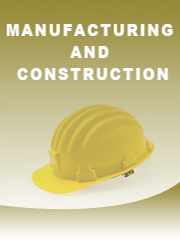Report overview
Oil free compressors use various technologies that bypass the need for oil. In oil lubricated compressors, oil is used in the compression chamber to cool and seal the air. Oil-free air compressors either have no mechanical contact inside the compression chamber or use alternate materials to protect the mechanism without lubrication. In an oil-free compressor, no matter what type of technology is being used, no oil will ever be used in the compression chamber. Most oil-free compressors utilize other materials like water or a Teflon coating to keep the mechanism running smoothly. Because the lubrication of bearings and gears is all external to the compression chamber, proper sealing prevents any oil from contaminating the compressed air. The result is a 100% oil-free air supply. Some oil-free designs have even removed metal-to-metal contact within the compression chamber, eliminating the need for oil-based and synthetic lubrication altogether.
This report aims to provide a comprehensive presentation of the global market for Oil-Free Compressors, with both quantitative and qualitative analysis, to help readers develop business/growth strategies, assess the market competitive situation, analyze their position in the current marketplace, and make informed business decisions regarding Oil-Free Compressors. This report contains market size and forecasts of Oil-Free Compressors in global, including the following market information:
Global Oil-Free Compressors Market Revenue, 2018-2023, 2024-2029, ($ millions)
Global Oil-Free Compressors Market Sales, 2018-2023, 2024-2029, (Units)
Global top five Oil-Free Compressors companies in 2022 (%)
The global Oil-Free Compressors market was valued at US$ 598.5 million in 2022 and is projected to reach US$ 770.5 million by 2029, at a CAGR of 3.7% during the forecast period. The influence of COVID-19 and the Russia-Ukraine War were considered while estimating market sizes.
Global key players of oil-free compressors include Atlas Copco, Ingersoll Rand, Hitachi, Kobelco, KAESER, etc. The top five players hold a share about 75%. Asia-Pacific is the largest market, has a share about 46%, followed by Europe and North America, with share 25% and 22%, separately.
We surveyed the Oil-Free Compressors manufacturers, suppliers, distributors and industry experts on this industry, involving the sales, revenue, demand, price change, product type, recent development and plan, industry trends, drivers, challenges, obstacles, and potential risks.
Total Market by Segment:
Global Oil-Free Compressors Market, by Power, 2018-2023, 2024-2029 ($ Millions) & (Units)
Global Oil-Free Compressors Market Segment Percentages, by Power, 2022 (%)
50 Horsepower and Below
50-100 Horsepower
100 Horsepower and Above
Global Oil-Free Compressors Market, by Application, 2018-2023, 2024-2029 ($ Millions) & (Units)
Global Oil-Free Compressors Market Segment Percentages, by Application, 2022 (%)
Food and Beverage
Electronics Industry
Pharmaceutical Industry
Oil and Gas
Automobile
Auto Ancillaries
Power Generation
Others
Global Oil-Free Compressors Market, By Region and Country, 2018-2023, 2024-2029 ($ Millions) & (Units)
Global Oil-Free Compressors Market Segment Percentages, By Region and Country, 2022 (%)
North America
US
Canada
Mexico
Europe
Germany
France
U.K.
Italy
Russia
Nordic Countries
Benelux
Rest of Europe
Asia
China
Japan
South Korea
Southeast Asia
India
Rest of Asia
South America
Brazil
Argentina
Rest of South America
Middle East & Africa
Turkey
Israel
Saudi Arabia
UAE
Rest of Middle East & Africa
Competitor Analysis
The report also provides analysis of leading market participants including:
Key companies Oil-Free Compressors revenues in global market, 2018-2023 (Estimated), ($ millions)
Key companies Oil-Free Compressors revenues share in global market, 2022 (%)
Key companies Oil-Free Compressors sales in global market, 2018-2023 (Estimated), (Units)
Key companies Oil-Free Compressors sales share in global market, 2022 (%)
Further, the report presents profiles of competitors in the market, key players include:
Atlas Copco
Ingersoll Rand
KAESER
Gardner Denver
Fusheng
Kobelco
Boge
Aerzen
Mitsui
Hitachi
Outline of Major Chapters:
Chapter 1: Introduces the definition of Oil-Free Compressors, market overview.
Chapter 2: Global Oil-Free Compressors market size in revenue and volume.
Chapter 3: Detailed analysis of Oil-Free Compressors manufacturers competitive landscape, price, sales and revenue market share, latest development plan, merger, and acquisition information, etc.
Chapter 4: Provides the analysis of various market segments by power, covering the market size and development potential of each market segment, to help readers find the blue ocean market in different market segments.
Chapter 5: Provides the analysis of various market segments by application, covering the market size and development potential of each market segment, to help readers find the blue ocean market in different downstream markets.
Chapter 6: Sales of Oil-Free Compressors in regional level and country level. It provides a quantitative analysis of the market size and development potential of each region and its main countries and introduces the market development, future development prospects, market space of each country in the world.
Chapter 7: Provides profiles of key players, introducing the basic situation of the main companies in the market in detail, including product sales, revenue, price, gross margin, product introduction, recent development, etc.
Chapter 8: Global Oil-Free Compressors capacity by region & country.
Chapter 9: Introduces the market dynamics, latest developments of the market, the driving factors and restrictive factors of the market, the challenges and risks faced by manufacturers in the industry, and the analysis of relevant policies in the industry.
Chapter 10: Analysis of industrial chain, including the upstream and downstream of the industry.
Chapter 11: The main points and conclusions of the report.
